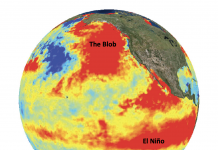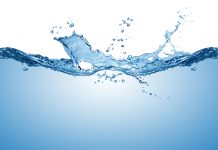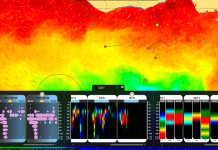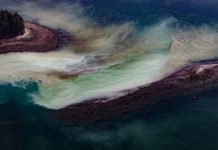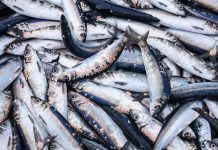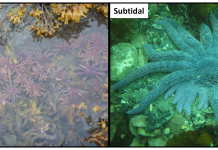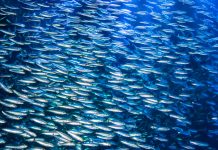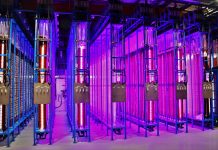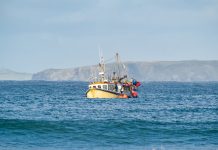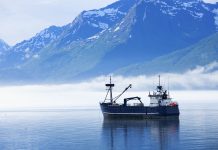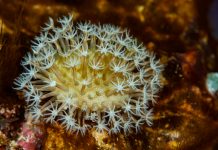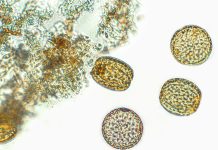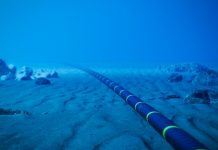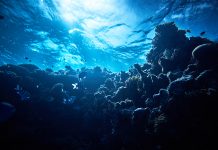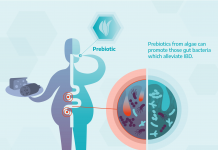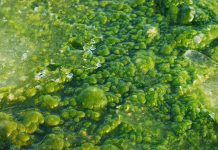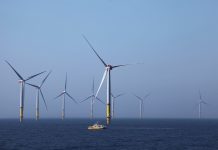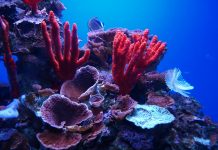Home 2024
Archives
Seabirds and humpback whales give early warning to marine heatwaves
Lauren Bien from Prince William Sound Science Center and Mayumi Arimitsu from USGS, Alaska Science Center and additional contributors, John Moran and Rob Suryan, Alaska Fisheries Science Center explain how seabirds and humpback whales provide early warning signals during extreme marine heatwaves.
Electric-field nanobubbles: Re-engineering water treatment
Niall J. English, from the University College Dublin, School of Chemical and Bioprocess Engineering, discusses electric-field generated nanobubbles, including re-engineering water treatment – and beyond.
How Tun-AI technology can be used to estimate tuna biomass
Satlink, a leading buoy manufacturer, has partnered with Komorebi AI researchers to develop Tun-AI, a machine-learning protocol that contextualizes echo-sounder data from buoys to estimate tuna biomass, shaping the future of fishery science.
Sustainable marine technologies and innovation – TFI Marine SeaSpring
TFI Marine places sustainable marine technologies and innovation under the spotlight, starting with a look at floating offshore wind.
Forage fish: Pacific herring in Alaska
W. Scott Pegau and Hayley Hoover discuss the plight of forage fish, with a particular emphasis on understanding the lack of recovery of Pacific herring in Prince William Sound, Alaska.
Turid Rustad: Navigating the seas of seafood processing
In this comprehensive discussion, Turid Rustad, professor at the Norwegian University of Science and Technology shares insights into her background in the realm of biotechnology and food science, the collaborative nature of her work, challenges in seafood processing, and her vision for the industry’s future.
Climate, heatwaves, nearshore ecosystems and the sunflower sea star
Sarah Traiger, Biologist at the U.S. Geological Survey, in this wide-ranging analysis, examines climate, heatwaves, nearshore ecosystems, and the plight of the sunflower sea star.
Co-creating a sustainable blue economy for sweden
Wehn, Linders and Barquet explain how the MISTRA C2B2 programme is working to bring about transformative change in participatory ocean governance in Sweden.
Pelagics: What are the opportunities and challenges?
Turid Rustad from the Norwegian University of Science and Technology provides an overview of pelagic fish and the impact of the growing global demand for food.
Microalgae as a sustainable source of protein and food ingredients
Microalgae can be an alternative sustainable source of protein and functional food ingredients that have the potential to improve gut and liver health.
The Fish-X project: Supporting EU small-scale fisheries going digital
The implementation of innovative data management and data collection tools will help support the sustainable development of EU fisheries; learn how the Fish-X project will support this digital transition of small-scale fisheries.
Gulf Watch Alaska: Long-term research and monitoring in the Gulf of Alaska
Within the Gulf of Alaska, in the North Pacific Ocean, three major events - both natural and human-caused – resulted in large-scale ecosystem changes during the last 50 years.
Exploring hexacorallian models to aid corals affected by climate change
In this interview, Benyamin Rosental, PhD, from the Shraga Segal Department of Microbiology, Immunology, and Genetics, looks toward hexacorallian models to transplant stem cells to corals affected by global warming.
Can we produce new medicines from microalgae?
Inflammatory bowel disease (IBD) is a chronic inflammation in the digestive tract. Currently no effective treatment exists, something that the researchers of the EU-funded Algae4IBD project want to change with the help of microalgae.
Protecting submarine cables for enhanced connectivity
Morten Eriksrud, at ASN Norway AS, looks to the protection of the global network of submarine cables and other critical subsea infrastructure.
Getting to know the subsea mapping company MMA Global Aqua
Jared Low, Project Manager at MMA Global Aqua, talks about his first impressions at the subsea mapping company and his predictions for the company’s future.
Prebiotics from algae as a treatment for inflammatory bowel disease
The Algae4IBD project is studying the potential of probiotics and algae-derived prebiotics as a treatment for inflammatory bowel disease.
Seaweed farming: Biomass production from algae
Algae are a high-potential yet underexplored source of renewable biomass, could seaweed farming be the future for biomass production?
Offshore wind farming in Taiwan
Dr Song GwoShyh from MMA Global Aqua Co. Ltd. discusses his company’s role in offshore wind farming in Taiwan and their ambitions for the...
Stem cell-based therapy for corals
Could medical approaches of stem cell-based therapy, be a tool for corals’ resilience to heat stress? Benyamin Rosental, Principal Investigator, Assistant Professor at Ben Gurion University of the Negev in Israel answers the compelling question here.


